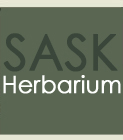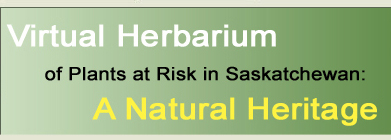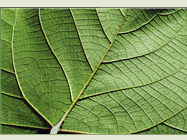
|

|

|

|

|

|

|
|
|
|
|
|
| Calamagrostis lapponica (Wahlenb.) Hartman | Species Image Gallery (opens in a new window) |
||||||||||||||||||||||||||||||||||||||||||||||||||
| TAXONOMY | |||||||||||||||||||||||||||||||||||||||||||||||||||
| Family: | Poaceae | ||||||||||||||||||||||||||||||||||||||||||||||||||
| Genus: | Calamagrostis | ||||||||||||||||||||||||||||||||||||||||||||||||||
| Species Synonyms: | Calamagrostis lapponica var. alpina
Hartman Calamagrostis lapponica var. groenlandica Lange Calamagrostis lapponica var. nearctica Porsild |
||||||||||||||||||||||||||||||||||||||||||||||||||
| Common Names: | lapland reedgrass | ||||||||||||||||||||||||||||||||||||||||||||||||||
| DISTRIBUTION | |||||||||||||||||||||||||||||||||||||||||||||||||||
| Canada: | Yukon – Mackenzie – Keewatin – Ungava – Labrador – southern Baffin Island, south to British Columbia – southwestern Alberta – northern Saskatchewan – Manitoba – Quebec – Newfoundland | ||||||||||||||||||||||||||||||||||||||||||||||||||
| Saskatchewan: | northern Saskatchewan; Lake Athabasca – Hasbala Lake – La Loche | ||||||||||||||||||||||||||||||||||||||||||||||||||
| Ecoregion: | Mid-Boreal Upland, Athabasca Plain, Churchill River Upland, Tazin Lake Upland, Selwyn Lake Upland | ||||||||||||||||||||||||||||||||||||||||||||||||||
| HABITAT | |||||||||||||||||||||||||||||||||||||||||||||||||||
| Saskatchewan: | moist to dry clearings and fen margins in boreal forest | ||||||||||||||||||||||||||||||||||||||||||||||||||
| Canada: | moist, sandy or gravel ground | ||||||||||||||||||||||||||||||||||||||||||||||||||
| RARITY STATUS | |||||||||||||||||||||||||||||||||||||||||||||||||||
| Provincial
Status According to Harms (2003): |
Vulnerable |
||||||||||||||||||||||||||||||||||||||||||||||||||
| Nature Conservancy Status: | G5 S2S3 |
||||||||||||||||||||||||||||||||||||||||||||||||||
| Saskatchewan
Species at Risk Status: |
None |
||||||||||||||||||||||||||||||||||||||||||||||||||
| COSEWIC Status: | None |
||||||||||||||||||||||||||||||||||||||||||||||||||
| Calamagrostis lapponica is vulnerable because it is rare or uncommon in Saskatchewan. It occurs in two or three general regions of the province and is usually locally numerous within limited areas. No threats are known or anticipated. | |||||||||||||||||||||||||||||||||||||||||||||||||||
| SPECIES DESCRIPTION | |||||||||||||||||||||||||||||||||||||||||||||||||||
| Height: | 30 – 60 cm | ||||||||||||||||||||||||||||||||||||||||||||||||||
| Roots: | rhizome short, thin | ||||||||||||||||||||||||||||||||||||||||||||||||||
| Stem: | loosely caespitose, slender, erect, with 2 or 3 nodes, glabrous or scabrous below panicle | ||||||||||||||||||||||||||||||||||||||||||||||||||
| Leaves: | blades 2 – 3 mm wide, flat or involute, adaxial surface scabrous, abaxial surface smooth; sheaths glabrous; ligules 0.5 – 3 mm long | ||||||||||||||||||||||||||||||||||||||||||||||||||
| Inflorescence: | panicle open or contracted, 5 – 15 cm long, 1 – 2 cm wide, often purple | ||||||||||||||||||||||||||||||||||||||||||||||||||
| Florets: | glumes 4 – 5.5 mm long, acuminate, slightly lustrous, slightly hairy on keel; callus hairs unequal; lemmas shorter than glumes, 3.5 – 5 mm long; lemma awn slender, almost straight, shorter than lemma | ||||||||||||||||||||||||||||||||||||||||||||||||||
| Fruits: | caryopsis | ||||||||||||||||||||||||||||||||||||||||||||||||||
| |||||||||||||||||||||||||||||||||||||||||||||||||||